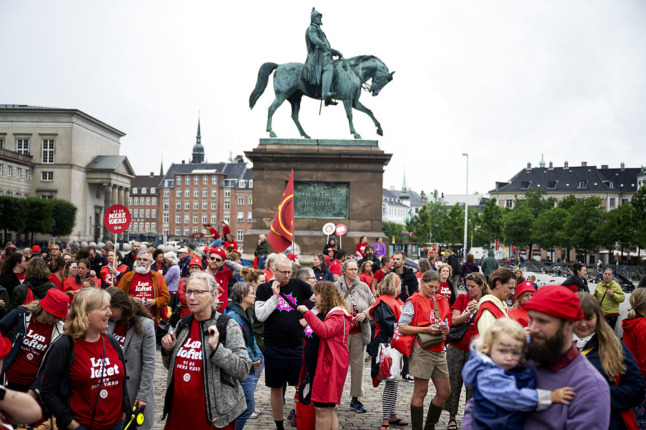The Local has heard complaints from many people living in Austria about poor service and lacklustre deliveries.
Forced to cancel order
One of the many experiences is that of Vienna-based journalist Elisabeth K.
She said she had been forced to cancel an order from Amazon in January after not even receiving a DPD notification her parcel had been delivered to a packet shop, as she was unable to collect it without a delivery number.
In December, she was kept waiting thirty minutes in a small packet shop to pick up a parcel which had not been delivered, even though she had been at home at the time when the DPD notice was left.
Sent to empty shop
Michael Wiktora, who works at an escape room in Vienna, said he was told by DPD two weeks ago his parcel would not be delivered, and he would have to pick it up from a parcel shop.
When he arrived at the address given for pick up, a 30-minute journey from his house, he found an empty shop and a number of people standing outside, who had also been sent to the wrong address.
A poster with a phone number said the shop had moved, but did not say where. By chance he found the new location while walking back to his house.
Facebook page complaints
The Facebook page of the company shows the anger of the many people who have complained to the Labour Chamber (AK) in recent weeks about the service.
DPD’s delivery problems were also explored in the consumer magazine programme Help on Ö1.
Speaking to Ö1, legal expert Daniela Zimmer from Vienna’s Labour Chamber, said there were often different versions of events, in which delivery personnel would claim they had tried to deliver, however customers said they had been at home and not had any notification.
At least one delivery attempt
However, the Postal Market Act makes it clear that there must be at least one delivery attempt. The Broadcasting and Telecommunications Authority (RTR) suspects delivery attempts are not being made and has opened a supervisory procedure.
DPD told ORF the reason for the problems was a sharp rise in parcel volumes. However, this is affecting all parcel services. DPD announced that it would investigate every single complaint “as soon as all cases are known in detail”.
“Unusual” to have 2,000 complaints over weekend
The supervisory authority RTR received more than 2,000 complaints on Saturday and Sunday, which the company’s lawyer Wolfgang Feiel said this was “very unusual”.
Usually the authority would deal with around 200 complaints a year.
If DPD does not offer a satisfactory improvement within a reasonable period of time, the authorities can force them to show better evidence they have attempted delivery.
DPD also reduced the amount of time packages are stored at parcel shops on 1 February, from ten to seven calendar days. Then the package is returned.
The form to report complaints about delivery problems can be accessed here.



 Please whitelist us to continue reading.
Please whitelist us to continue reading.
Member comments